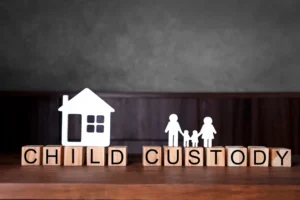
Since 1999 Colorado has dropped the usage of the term ‘child custody’ from its legal dictionary and instead prefers to use the term ‘parental responsibility’ in its place. While the basic idea behind it remains the same, so do a lot of the rules surrounding it. The parental responsibilities include deciding who the child will live with, deciding visitation rights, agreeing upon child support amounts, and other such matters of importance in the child’s life. Child Custody In Colorado, much like other states, considers the child’s best interests at heart and at the first priority. Whatever they judge to be better for the child is what is eventually decided. In 1973, Colorado adopted the Uniform Child Custody Jurisdiction and Enforcement Act.
If you have a child support case coming up, it is best to get familiar with the laws surrounding the case within your state and discuss them with your family lawyer, so you are better prepared for what’s to come.
Table of Contents
Factors that Affect the Decision Making
Initially, the parents that are getting separated or divorced are required to submit a mutually agreed-on parenting plan, which details the visitation schedules and other details for review by the court. If two separate and conflicting parenting plans are received, the court has to study both and observe the case better to be able to make a decision that benefits all parties.
Colorado, along with many other states, refuses to acknowledge the mother as the better parent by default by virtue of her sex. Both the parents are considered, and other factors are taken into account before passing judgment on who wins the child’s parental responsibilities case.
Factors to Consider in Child Custody Cases
In order to reach a sound decision on who should get primary custody of the child, it is necessary to take into consideration all possible factors, on all fronts. The judges of family courts aim to minimize the trauma the child has to bear and strive to make a decision that would impact the child in the least adverse way.
Child’s Opinion
Though there is no set age limit for a child’s wishes to be taken into consideration, if the court deems the child mature enough, they are given a chance to speak up. The child is, after all, a minor, but if they seem mature and sophisticated enough to vice out their preference and justify it in court, the judges take it into account as much as possible. If the child is not mature enough to have a say, the court
Parent’s Wishes
The parent’s wishes are just as important and are given much weightage, but it is to be remembered that the courts are only concerned about the well-being and welfare of the child. If the parents voice out legitimate concerns and justify why they think the child should stay with either parent.
Emotional Bonds with the Parents
Since the main issue is keeping the child’s happiness intact, and making it as easy and effortless for the child as possible, the emotional bond the child shares with his parents must also be considered. The courts will study what parent the child is most attached to and try to make a decision that causes the child with the least emotional turmoil and anxiety. The scales might be tipped in favor of the parent the child is attached to.
Change of Location
A change of location can be distressing for a child and can affect his education as well. If one parent lives in another state and granting them primary custody will require the child to shift places, the court will likely decide in favor of the parent that resides closest to the child’s home state. The court does not want to uproot the child’s life and move them to another city or state and would prefer to protect the child from the instability of moving from one’s neighborhood and changing schools.
The Parent’s Financial Standing
Though emotional attachments and investments are important, courts have to be more practical about their decisions. A parent can be a wonderful guardian emotionally, but that does not mean they can provide the best living conditions to the child. Courts have to look for financial stability, too and determine if the parent can provide a permanent house, better schooling, and fulfill other material needs of the child.
It is to be kept in mind that while all these factors are given their due importance in a child custody case, the courts do not judge the case primarily on any of these factors. All the parties are heard, their reasons considered, their opinions and preferences notes, but there is no ‘one’ deciding factor.
The court will take into account all the information and then judge the situation to see what works best in the child’s favor. At all times, the courts must remember that they are there for the welfare of the child, and not of the parents.
What typically happens in Child Custody Cases in Colorado?
Each child custody case is unique and has a significantly different set of situations and circumstances that could affect the ultimate decision. Typically, most child custody cases in Colorado result in ‘joint parental responsibility,’ which means the parents share the legal custody of the child if that is considered best in the child’s interest. This means that both parents will have equal responsibilities and say in the growth, education, and other important decisions of the child’s life.
However, the joint custody system can become messy and complicated if either parent lives in another state or so. In such situations, the courts and parents agree that one parent will have sole physical custody of the child, where else the other can have visitation rights and parenting time.
Sole custody is also awarded in Colorado if there are instances of neglect or abuse towards the children from one parent at some time. Of course, in such situations, that particular parent does not get custody at all.
There are other smaller matters that can also become part of custody cases in a Colorado Springs divorce, including grandparent visitation rights. If both the parents have no reservations, the grandparents of the child from both sides also have the right to visit and spend time with the children and stay a relevant part of their lives moving forward.
With a 50/50 split in parenting time and custody, the higher earner of the two parents must pay an amount to the lower-earning parent to balance the child’s living standard in the other parent’s custody.
Need Help with Physical Custody Arrangement?
Our El Paso County family law attorneys understand the importance of the family as a unit and that the cases of divorces or separation between the parents can be physically and emotionally taxing on the child’s mental health and development. We are dedicated to protecting your rights and those of your child so you can continue to remain a part of your child’s life, and your child can continue living the best life possible. Contact us today to discuss your custody dispute so we can work the best arrangements and schedule for you.

